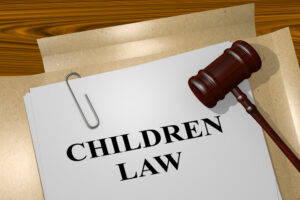Family Lawyers
 While many people can not imagine living on their own without their parents as a minor this can be an unfortunate reality for some minors. Deciding to emancipate yourself is a difficult and time-consuming one, that goes along with a difficult and time-consuming process of emancipation. There are many things that must be considered when making this choice and there are necessary requirements that must be met before this process can even begin.
While many people can not imagine living on their own without their parents as a minor this can be an unfortunate reality for some minors. Deciding to emancipate yourself is a difficult and time-consuming one, that goes along with a difficult and time-consuming process of emancipation. There are many things that must be considered when making this choice and there are necessary requirements that must be met before this process can even begin.
To begin it is important to know what emancipation means when it comes to minors in the state of Texas. Emancipation means that a “minor wishes to have the legal capacity of an adult”(TLH). To do that a minor must ask the courts to remove the “disabilities of minority”, which are the “restrictions” of a “minor’s legal capacity” (TLH). There can be many reasons that a minor might wish to ask the court to allow them to emancipate themselves. These reasons can range from said minor being “financially independent” from their legal guardians, those legal guardians being “neglectful or abusive,” or a minor having “moral objections to their parents’ living situation” (Find Law). These are not small disagreements that a parent might have with their child, but fundamental and objective reasons why it would be beneficial to the minor to be able to make their own decisions, especially when it comes to legal ones.
Being emancipated is not in the best interest of most minors and should be considered a last resort for those who wish for legal freedom from their legal guardians. Emancipated minors do not only have the freedom to make their own legal decisions but also must provide for and take care of themselves. This means the emancipated minor will have to “find and pay for a place to live”, pay for a healthcare plan, and “buy and cook for [their] own food” (Find Law). Meeting all of these requirements is a large undertaking for someone who would, under normal circumstances, be considered a legal minor. It is quite difficult to find a place to live that would allow a sixteen or seventeen-year-old to rent there, let alone find healthcare. However, if all of these requirements are met, there is still the matter of filing the case (or in this case, petition) in the courts.
In order to gain legal emancipation as a minor it is important to know what a petition is, what is included in the petition, and where to file the petition. To start, a legal petition is simply a paper asking them to hear your case and make a decision on it. Specifically, for emancipation petitions, they must include basic information such as “the minor’s name, age, and place of residence” along with that of their parents or legal guardians (TLH). The most important part of the petition is the “reasons why removal” of legal guardianship is “in the best interest of the minor” (TLH). This is the part of the petition that the judge is going to look at the most as it will be taken into consideration when they make their decision about the case. Lastly, is the matter of where to file the petition. “The petition must be filed in the county” where the minor lives (TLH). Now it is also important to note that legal guardians must be notified if a minor wishes to
be emancipated from them. If emancipation is granted, they will lose their parental rights so they must be included in this process.
While emancipation is a very difficult, complicated, and time-consuming process, it is important for those who feel like it is their best option to be completely informed of all that it requires. This way the procedure for emancipation will be that much less stressful and confusing.
To learn more about the emancipation procedure, you should contact a family lawyers at Brandy Austin Law Firm.
